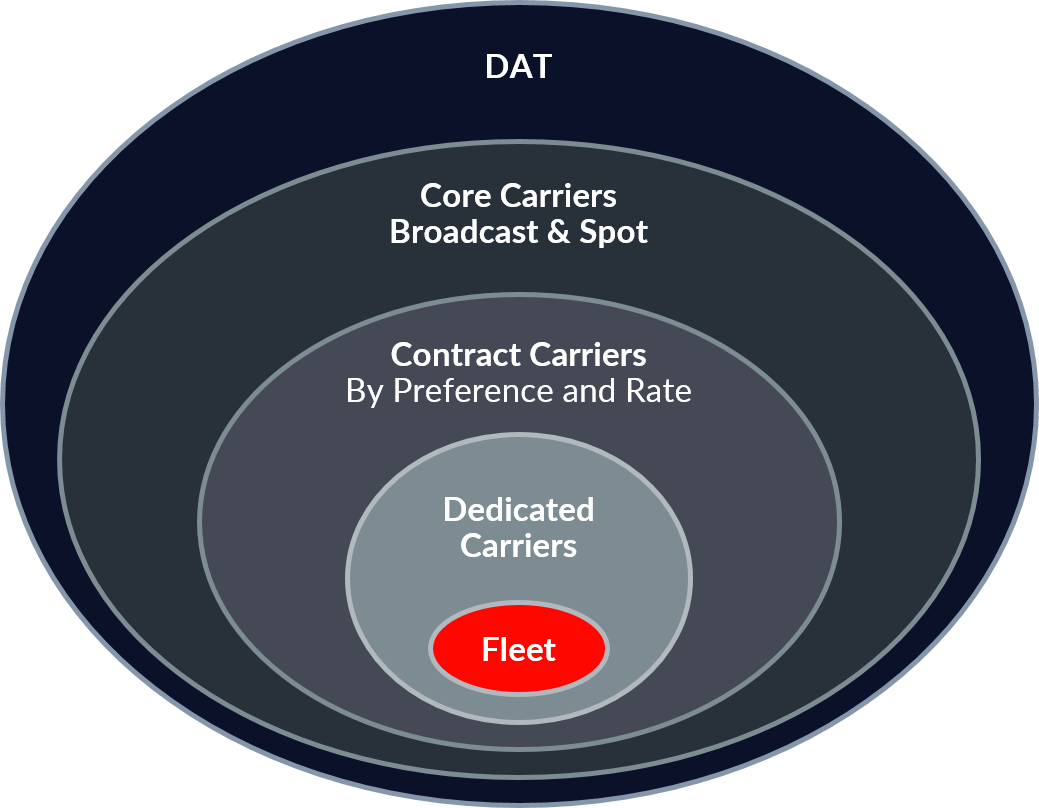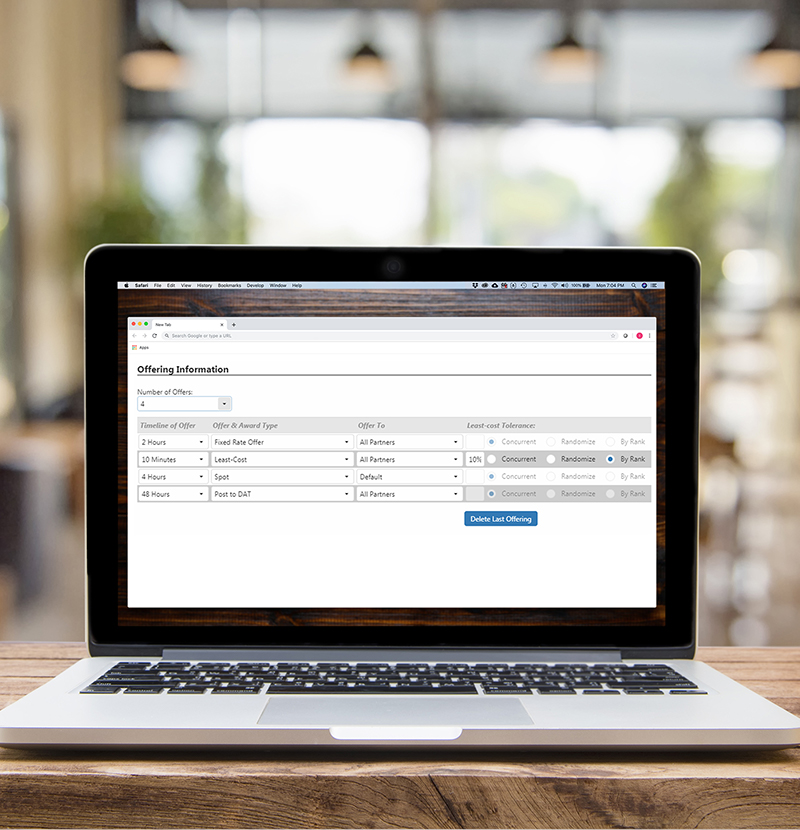Let's face it, many TMS products share the same features nowadays. And, with all the noise in the market, it can be difficult to understand what differentiates providers. So, what makes IntelliTrans different? Our dock scheduling feature is unique and so are our predictive exception management capabilities, but the item that really sets us apart is our ever-expanding tendering algorithm.
Our unique TMS tendering algorithm gives load visibility to an ever-expanding set of carriers in a structured, defined order to optimize coverage and cost. Continuous expansion of visibility to carriers means lower-cost carriers can still accept load even when a higher-cost carrier has visibility to it. It also allows more carriers to see your freight when loads are difficult to cover. This method offers substantial savings compared to other transportation management systems that remove the load from each carrier after their time to review has expired. In fact, we found the average cost of carriers that took a load was $110 lower than the highest-cost carrier that could currently see that load. Average savings of $110 per load is impressive in any market.
How Ever-Expansive TMS Tendering Works
Using algorithm templates, shippers and brokers set up automated tendering processes that control carrier visibility of loads and define the order in which they view them. Tendering can be as simple as auto-awarding loads to a private fleet or as complex as multiple tendering algorithms per customer and location, providing load visibility all the way from private fleets to spot bids and load boards.


Tendering Strategies
There are numerous tendering methods and strategies and all our methods can be combined to meet the requirements of your transportation department. Methods can be used across an enterprise, parts of the business, or a specific lane. Example methods include:
- Least-cost: offer each load to the carrier(s) with the lowest rate on the lane first and expand the offer to additional carriers on a configurable timeline.
- Auto-award: assign shipments to certain carriers or your fleet.
- Allocations: award volume on a contractually-committed percentage (i.e., 60% to Carrier A and 40% to Carrier B) or by the number of loads (i.e. 10 loads per day to Carrier A, 5 loads to Carrier B).
- Service-based: award loads based on carrier service KPIs, which are calculated through our TMS carrier scorecards.
- Customer-based: award loads based on customer preference for carriers (i.e., all loads to Customer X must use Carrier C).
- Spot bids: allow carriers who do not have a rate on the lane to provide a bid to take the load.
- Spot networks: post loads to freight-matching load boards like DAT.
Mock Process
In the offer timeline below, assume that the load is covered at 11:30 am. This means all carriers up to Carrier D can see and accept/decline the load at this time. In other systems, only Carrier D would be able to see the load. If Carrier B takes the load at 11:30 am then IntelliTrans has provided cost avoidance of $200 ($1,200-$1,000). 



